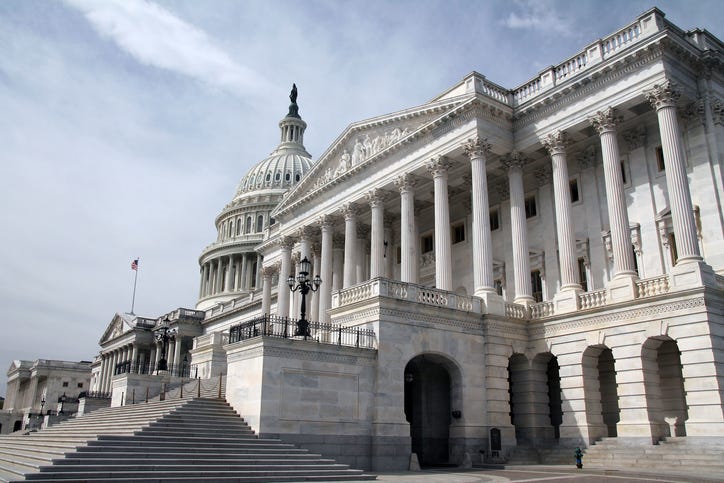
If the House can't come to an agreement about how to fund the government by this weekend, the government will shut down for the 15th time in history, and the first time since the record 35 day shutdown from December 22, 2018, to January 25, 2019.
KRLD's John Liddle talked with Mark Hamrick, senior economic analyst at Bankrate about the impacts of the looming shutdown.
1. Shutdowns are not unprecedented, but this one is particularly concerning. Members of Congress have gone back on their word, causing dysfunction and jeopardizing the functioning of the federal government.
Hamrick: "I think first of all, it really does speak to the huge amount of dysfunction that has become emblematic of the Congress."
"Part of what has sort of ruined this process here is that those who had agreed to that spending plan and voted on that spending plan previously have essentially now gone back on their word."
2. The economic impact is staggering. Federal government spending declines by $1 billion per week during the shutdown, causing lost production and output. Small and large businesses reliant on government funding suffer, and federal workers face financial hardship.
Hamrick: "Some will not get payment whatsoever, eventually, because some of that business will simply be lost. So that's a loss to them. And then there are just sort of the other businesses that are around federal offices that would otherwise be staffed. And think about a sandwich shop or a dry cleaner or whatever it might be. Those people, we're seeing it now in Washington DC area where federal employees are already not showing up to restaurants and so forth, and those business operators are are saying there's a palpable sense that the business activity has has already declined, and and that would obviously get more severe in the eventuality of what we think may well happen."
3. Most Americans live paycheck to paycheck and don't have enough savings for emergencies. Imagine being a federal worker asked to show up for work without pay. Contractors and businesses reliant on government funding suffer as well. The trickle-down effect is real.
Hamrick: "Imagine being a federal worker, being asked either, you know, go on furlough or or to show up on the job like, let's say, the people who are manning air traffic control centers or those at TSA or along the border. As well as members of the coast guard who did not get funding from the federal government or their paychecks the last time around. Imagine being those people and being asked to show up or being told to show up on a job of having mission critical jobs and not getting, essentially, the pay that they're rightfully due."
4. What's worse, the shutdown is jeopardizing economic transparency. Economic data, including the monthly employment report, won't be released until the government reopens. This affects financial markets, investors, and personal finances.
Hamrick: "The lack of transparency or visibility regarding the economy as the government shuts down is one of the main issues that causes me the most grief here."
5. Unless people start feeling the impact, politicians seem slow to act. It may take a situation like flight cancellations due to understaffed air traffic control for change to happen. We need Americans to voice their dissatisfaction and demand action.
Hamrick: "I think for average Americans like me where push comes to shove. And we've seen this in the past is where people really do start to feel the impact. And one of the ways that we saw this last time around was that air traffic control or airport towers were not able to staff appropriately and flights started getting canceled. Until people actually feel some measure of discomfort or disruption, that's when people in congress seem to start having their proverbial phone lines light up. And so it may well take another situation like that where the impacts on the ground really do push people to the point of...actually taking action...and getting in touch with folks to express their dissatisfaction."
Follow KNX News 97.1 FM
Twitter | Facebook | Instagram | TikTok
